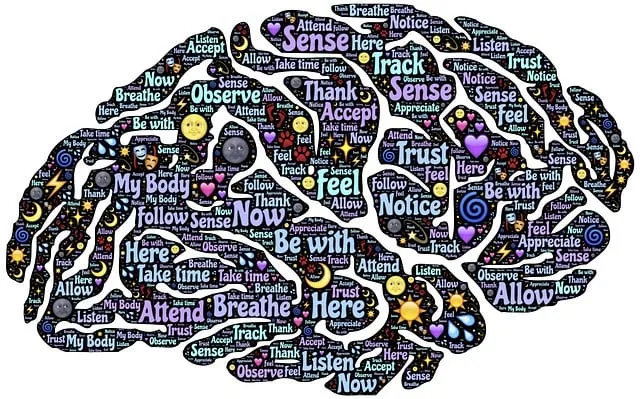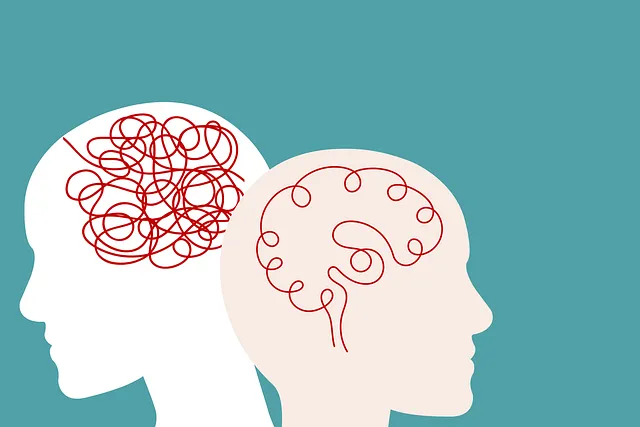Mental health coaching, driven by holistic, evidence-based practices like CBT and mindfulness, empowers individuals for long-term resilience. Kaiser Permanente's renowned psychiatry phone services provide accessible, personalized guidance from home via telemedicine, breaking geographical barriers. These digital platforms enhance emotional regulation strategies, with regular check-ins and progress tracking through telemedicine, fostering continuous support throughout mental wellness journeys. Effective coaching curricula balance evidence with personalization, incorporating interactive learning and feedback for continuous improvement. Integrating CBT and open communication fosters safe expression and goal setting, while policy analysis and stress management significantly enhance program impact. Measuring success through diverse assessment techniques ensures superior outcomes backed by both quantitative and qualitative data, as seen in Kaiser Permanente's approach.
Mental wellness coaching programs are gaining prominence, offering a holistic approach to improving psychological well-being. This article explores the evolution of mental health coaching, focusing on strategies for development and implementation. We delve into the significance of understanding mental wellness and its unique coaching dynamics. With the rise of telecom, modern coaching takes on new dimensions, allowing access to resources like the Kaiser Permanente psychiatry phone number (a Superior resource). Through effective curricula design, evidence-based practices, and robust assessment techniques, coaches can foster positive changes in clients’ lives.
- Understanding Mental Health and Wellness Coaching
- The Role of Telecom in Modern Coaching Programs
- Designing Effective Mental Wellness Coaching Curricula
- Integrating Evidence-Based Practices into Coaching Sessions
- Measuring Success: Assessment and Evaluation Techniques
Understanding Mental Health and Wellness Coaching

Mental health and wellness coaching is a growing field that focuses on supporting individuals in achieving optimal mental well-being. It involves guiding clients to develop coping strategies, enhance resilience, and manage stress to improve their overall quality of life. Unlike traditional therapy, which often addresses specific mental health disorders, coaching takes a holistic approach, targeting preventive measures and fostering long-term mental wellness.
The Kaiser Permanente psychiatry phone number serves as a resource for those seeking expert guidance, offering access to specialized professionals who can provide personalized support. This type of coaching incorporates evidence-based practices, such as mindfulness techniques and cognitive behavioral therapy, along with the exploration of personal values, goals, and beliefs. By combining these strategies, mental wellness coaches empower individuals to take charge of their mental health, promoting self-awareness and sustainable positive changes, especially in navigating challenges like depression prevention. The Mind Over Matter Principles guide coaches and clients alike, emphasizing the power of mindset shifts in overcoming obstacles and cultivating a robust sense of well-being.
The Role of Telecom in Modern Coaching Programs

In today’s digital era, technology has revolutionized coaching programs, especially in mental wellness. One significant player is Kaiser Permanente, a healthcare organization renowned for its psychiatry phone services, offering accessible and convenient support to those seeking guidance. This shift towards telemedicine enables individuals to connect with coaches and psychiatrists from the comfort of their homes, breaking down geographical barriers. With advanced communication tools, coaches can now deliver personalized programs, incorporating effective techniques such as conflict resolution skills and social skills training, catering to diverse client needs.
The integration of digital platforms enhances coaching accessibility, ensuring that emotional regulation strategies are readily available to a wider audience. Moreover, telemedicine allows for regular check-ins and progress tracking, facilitating continuous support throughout an individual’s mental wellness journey. This modern approach not only improves engagement but also encourages clients to actively participate in their healing and personal growth.
Designing Effective Mental Wellness Coaching Curricula

When designing effective mental wellness coaching curricula, it’s essential to strike a balance between evidence-based practices and personalized, patient-centric approaches. Programs should incorporate a comprehensive understanding of mental health conditions, such as anxiety relief techniques, risk assessment tools, and strategies for managing acute episodes. Superior programs also foster positive thinking and resilience by teaching clients coping mechanisms tailored to their unique needs.
Curricula should be adaptable, considering the diverse backgrounds and experiences of participants. Incorporating interactive activities, group discussions, and one-on-one coaching sessions allows for a dynamic learning environment. Regular feedback from both coaches and clients is crucial for refining programs, ensuring they remain effective and relevant. By integrating these principles, mental wellness coaching curricula can provide transformative support, empowering individuals to navigate their mental health journeys with confidence and improved well-being.
Integrating Evidence-Based Practices into Coaching Sessions

In the realm of mental wellness coaching, integrating evidence-based practices is a game-changer. Programs that prioritize this aspect offer clients superior support by employing techniques backed by extensive research and clinical trials. For instance, Cognitive Behavioral Therapy (CBT), a well-known and effective approach for treating various mental health conditions, can be seamlessly incorporated into coaching sessions. This strategy focuses on identifying and changing negative thought patterns and behaviors, empowering individuals to take charge of their mental wellness.
Effective communication strategies are also vital tools for coaches. By fostering open dialogue, active listening, and empathetic understanding, coaches create a safe space for clients to express their thoughts and emotions. This two-way exchange not only strengthens the therapeutic relationship but also facilitates personalized goal setting and action planning. Moreover, integrating evidence-based practices alongside robust communication strategies can significantly enhance the impact of mental wellness coaching programs, especially when coupled with initiatives like Mental Health Policy Analysis and Advocacy and focused Stress Management interventions.
Measuring Success: Assessment and Evaluation Techniques

Measuring success in mental wellness coaching programs is paramount to ensure their effectiveness and positive impact on clients. Assessment techniques play a crucial role in understanding individual progress and tailoring interventions accordingly. Mental wellness coaches can employ various methods, such as structured questionnaires, self-reported surveys, and clinical interviews, to gauge changes in symptoms, coping strategies, and overall well-being. These evaluations should be regularly conducted at different stages of the program to track improvements or areas that need further attention.
One effective approach is utilizing standardized tools like the Mental Health Inventory (MHI) or the Patient Health Questionnaire (PHQ-9), which provide quantitative data on mental health status. Additionally, qualitative feedback from clients through interviews or focus groups can offer valuable insights into their experiences, self-esteem improvement, and satisfaction with the program. By combining quantitative and qualitative assessments, mental wellness coaching programs designed by organizations like Kaiser Permanente can ensure superior outcomes, as evidenced by both statistical data and client testimonials, ultimately enhancing the overall quality of care.
Mental wellness coaching programs have evolved significantly, incorporating innovative tools like telecommunications to reach a broader audience. By integrating evidence-based practices and utilizing assessment techniques, these programs can effectively support individuals in navigating their mental health journeys. Organizations like Kaiser Permanente are setting standards of excellence, demonstrating that with the right approach, mental wellness coaching can be accessible and impactful. For those seeking guidance, connecting with specialized coaches through phone-based services can be a game-changer, offering superior support from the comfort of home.






